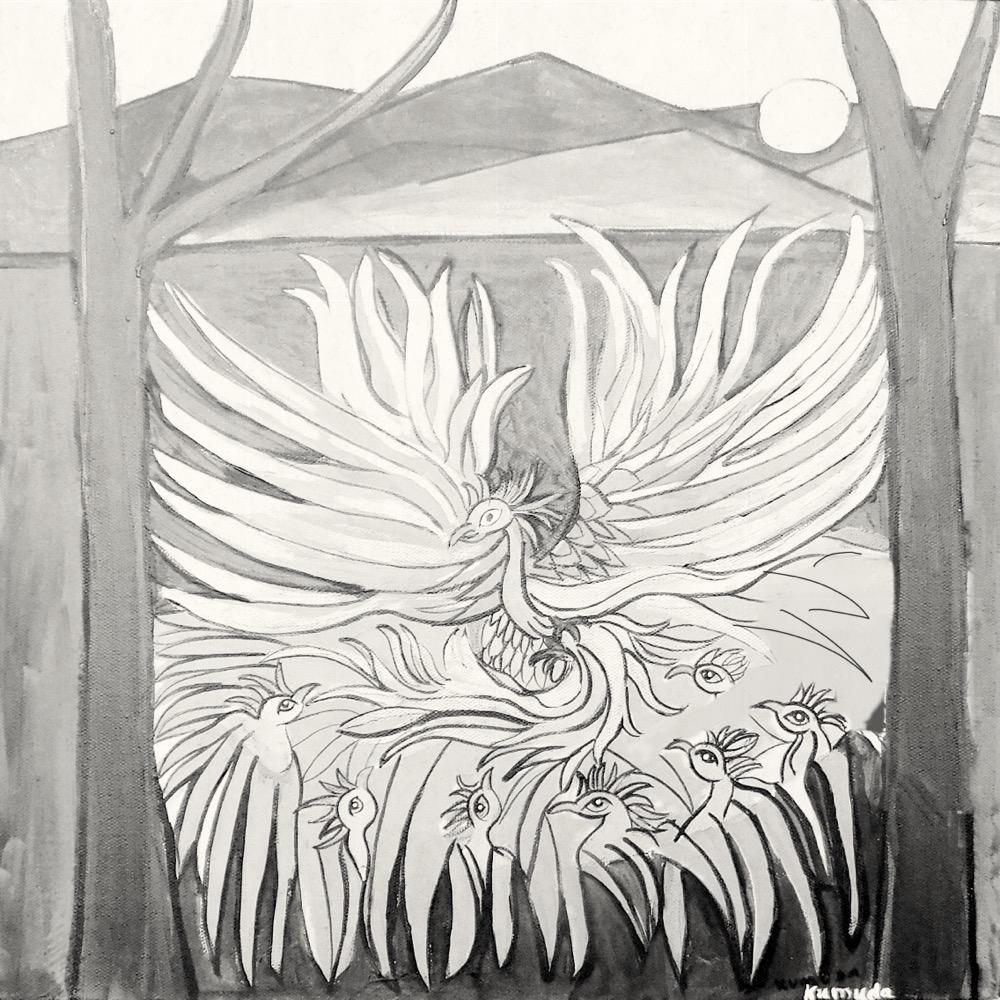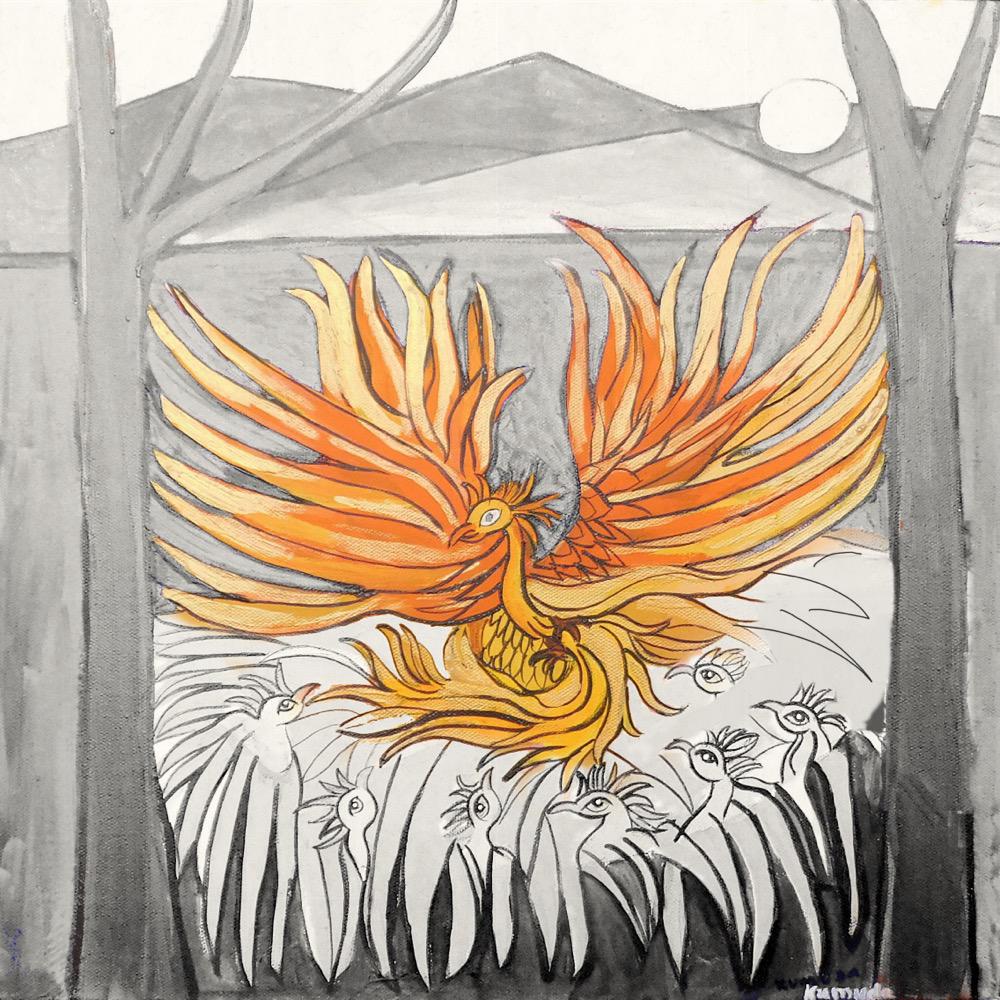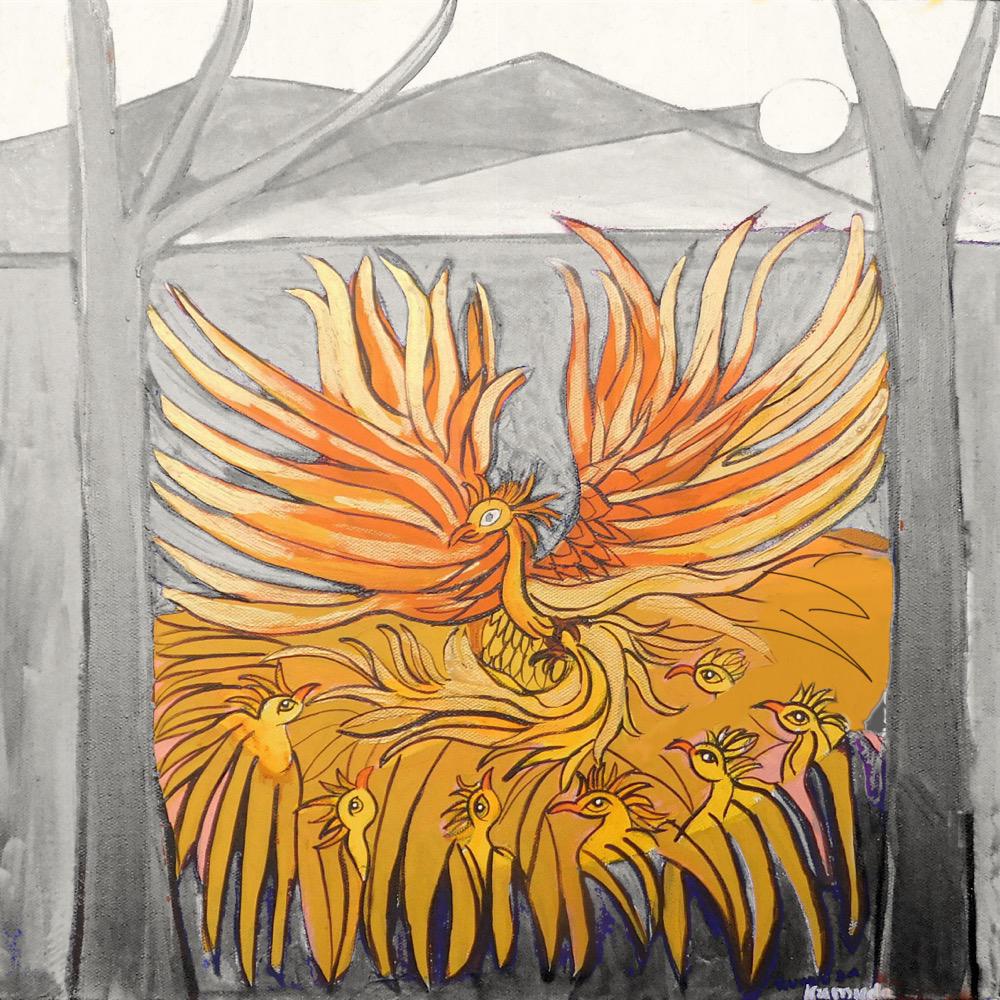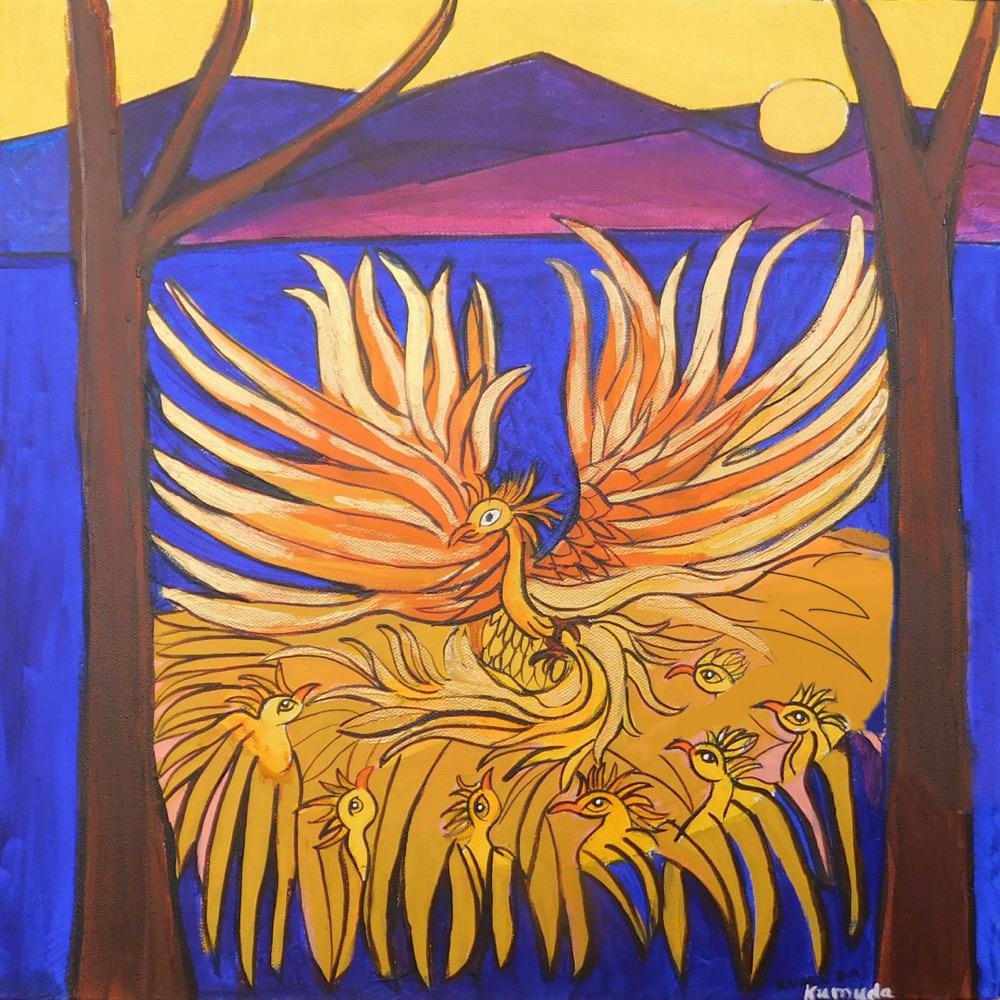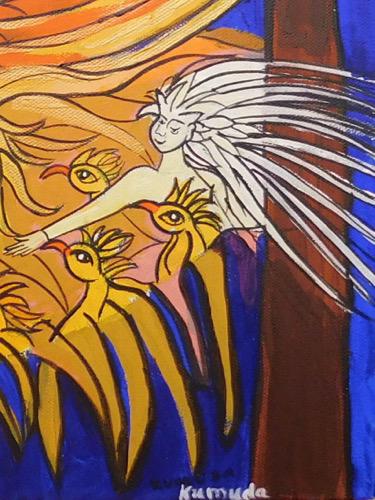The Child of the Simorgh
As Told By
Xanthe Gresham Knight
Illustrated by
Kumuda Krovvidi
Long ago in Iran, a land of deserts, mountains, gardens and fountains, there was a hero by the name of Sam. He had pride in his stride and a swing in his step. His hair was thick and black as jet. Sam fell in love, got married and had a child as beautiful as the world’s brightening sun. But this child had white, white hair. Everyone in Persia at this time was born with black hair.
“He must be a demon!” cried Sam. “He’s no son of mine!” He called a servant, “Take this child, I don’t care where, to the deserts, the forests or the mountains but leave it alone to die.”
And so, the little child was carried away. “Where can I leave him?” the servant wailed. “Not in the desert, he’ll be burned in a moment. Not in the forest, he’ll be eaten in an instant. I’ll take him to the mountains, the mountains are closest to God.”
And so, a little boy, so young he couldn’t tell black from white, was left at the foot of Mount Alburz. He must have been a hero, because by day, to stop being burned, he turned his little face away from the sun. By night, to keep warm, he kicked his little arms and legs. And if he was hungry, he sucked his little fingers.
At the top of Mount Alburz were two trees. One of ebony wood and one of sandalwood. Between those two trees was a nest, and in the nest — chicks, as big as you are now. The mother of those chicks was the Simorgh. Her beak dripped blood, her feathers outshone the sun and her tail streamed like a comet.
Looking for food one morning, the Simorgh saw a child cradled in the rocks and considered him a perfect snack for her little ones. She snatched him up with her strong talons and dropped him in the nest.
But far from eating the boy, the little birds softened him with their feathers. And it was the little chicks that taught the mother bird how to love the human child. She fed him meat instead of milk and he grew to be as tall as a cypress tree with long white hair flowing down to his waist.
The Simorgh called her son Zal, which means albino. He could catch a fish with a strike of his fist. He knew when the rains would come and how to stride towards the sun. But his favourite thing was to nestle in the chest feathers of his mother at sunset and look out over Iran — its flowering trees, purple mountains and distant horizons.
Meanwhile, Sam grew old. His hair was now white, and his beard curled down his chin like white willow leaves. One morning as he looked in the mirror it occurred to him, “There’s no evil in the colour of a person’s hair. What did I do to my only child?” His heart broke like a branch in the desert.
Sam began to search through the whole of Persia to find what had happened to the abandoned baby. As he walked, the sun, like a brightening shield, rose up and up and the dark, like a dusky raven flew down and down.
At the top of Mount Alburz, between two posts, one of ebony wood, one of sandalwood, Sam saw a giant nest and hanging down from that nest, a single strand of white, white hair! His son was in there but how could he face him? He threw himself on the ground and poured dust and stones on his head.
The Simorgh thought he deserved to cry. But Sam wept so harshly that eventually, she felt sorry for him. We all make mistakes. Sometimes terrible ones. She woke Zal.
“I am your heart mother. No one could love you more than me. But your birth father is waiting for you, below our nest.”
Tears streamed as Zal looked from the Simorgh to the human, from the human to the Simorgh.
“Don’t cry, I’ll always be with you and if ever you doubt it, take this feather and stroke it across your cheek. You will remember the great love of your Bird Mother. If ever you’re in trouble, take this feather and burn it. And wherever I am in the world, I’ll come to you.”
And then she picked up Zal in her strong talons and placed him beside his father.
When Sam saw his son, his heart was like a Paradise Garden. Zal forgave his father for everything. Of course he did. He was the child of the Simorgh. He had the strength of the mountains in his muscles, the freedom of the sky in his eyes and stretching out before him — wide, wide horizons.
— END —

